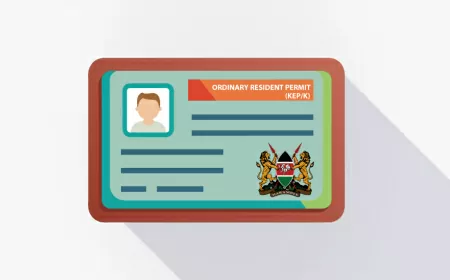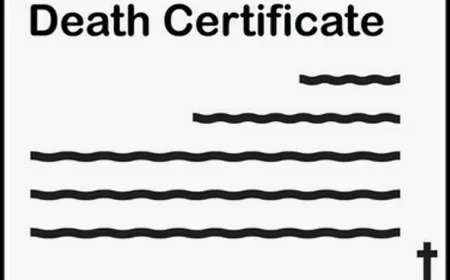Terminating Employment
Understand the termination of employment contracts regulations in Kenya. This guide covers the different types of contract terminations, notice periods, severance pay, and legal requirements to properly end an employment contract in compliance with Kenyan labour regulations.

An employment contract can be terminated for the following several reasons;
1. Gross Misconduct or Fundamental Breach.
An employment contract can be terminated for several reasons, with gross misconduct or fundamental breach being significant grounds for termination. According to the Employment Act,2007 an employer has the right to end an employee's contract if such misconduct occurs.
The Act specifically outlines various actions that constitute gross misconduct:
- Unauthorized absence from work without valid reason or permission.
- Intoxication while at the workplace.
- Intentional neglect of duties as stipulated in the employment contract.
- Use of abusive language or displaying insulting behavior towards the employer or other authority figures.
- Committing, or being reasonably suspected of committing, a criminal offense that significantly impacts the employer or their property.
- Failing to obey a directive from the employer that falls within the scope of the employee's duties.
- Being arrested for an offense punishable by imprisonment and not being released within 14 days of the arrest.
When an employer wishes to terminate an employee for gross misconduct or fundamental breach, they must follow due process:
- Explain the reasons for termination to the employee in a language they understand.
- Allow the employee to have a representative of their choice present during the explanation.
- Listen to and consider any representations made by the employee and their representative regarding the termination.
If, after following due process, the employer finds the employee guilty of gross misconduct, they may proceed with dismissal. This means terminating the employment without notice or with less notice than the employee is statutorily or contractually entitled to receive.
2. Termination of Employment Due to Poor Performance
To legally terminate employment based on poor performance, employers must follow a specific procedure:
a). Performance Appraisal
- Conduct a thorough evaluation of the employee's performance over time.
- Ensure the employee participates in this process.
- Document lack of improvement.
b). Performance Improvement Plan (PIP)
- Develop a PIP in collaboration with the employee.
- Include specific targets and timelines.
- Allow a minimum of two months for improvement.
c). Assessment
- Evaluate the employee's performance during the PIP period.
- Clearly document any failure to meet set targets.
Prior to termination, the employer must:
- Provide reasons for termination in a language the employee understands.
- Allow the employee to have a representative present during the explanation.
- Listen to and consider any representations made by the employee or their representative.
After following this process, the employer may terminate employment by:
- Giving notice, or
- Paying wages in lieu of notice.
This procedure ensures fair treatment and provides opportunities for improvement before termination occurs.
3. Physical Incapacity
To initiate termination based on physical incapacity, employers must:
a). Provide substantial evidence demonstrating the employee's inability to carry out their work responsibilities.
b). Explore and exhaust all possibilities for suitable alternative positions within the organization.
c). Conduct a formal meeting with the employee, during which the employer must:
- Clearly explain the reasons for termination in a language the employee understands.
- Allow the employee to have a representative of their choice present during the explanation.
- Listen to and consider any representations made by the employee or their representative regarding the termination.
d). Ensure that due process is followed throughout the termination procedure.
Upon completion of these steps, if termination is deemed necessary, the employer may proceed by either:
- Providing the employee with proper notice of termination, or
- Offering payment of wages in lieu of notice.
4. Redundancy
An employer may implement redundancies for various reasons, including the following:
- Economic downturns beyond the employer's control.
- Commercial judgments indicating overstaffing.
- Mechanization reducing the need for staff.
- Business reorganization or new strategies requiring fewer employees.
a). Mandatory Procedural Requirements
An employer must comply with mandatory procedural requirements before terminating an employee's employment due to redundancy.
Some of the procedural requirements include;
- The employer must inform the labour officer, affected employees, and relevant labour unions at least one month before the intended redundancy.
- The employer must consult with employees about the redundancy.
- When selecting employees for redundancy, employers must consider seniority, skill, ability, and reliability.
b). The Termination Process
After following the required procedures, the employer may terminate employment contracts by giving notice or paying wages in lieu of notice.
c). Additional Employee Entitlements
- Severance Pay: Calculated at a rate of at least 15 days' pay for each completed year of service.
- Accrued Leave Payment: Any unused leave must be paid out.
5. Contract Expiration
Fixed-term employment contracts have a predetermined end date. Upon reaching this date, the contract automatically terminates. This means:
- The employment relationship concludes without the need for additional action from either party.
- Both employer and employee are aware of the termination date from the contract's inception.
- No formal notice of termination is typically required, as the end date is explicitly stated in the contract.
- Once the contract expires, neither party has further obligations unless otherwise specified in the agreement.
- If continued employment is desired, a new contract or extension must be negotiated and agreed upon by both parties.
6. Unfair Dismissal Remedies
Unfair dismissal remedies are an important aspect of employment law. Employees have the right to challenge the legality or fairness of their termination, regardless of how the employer conducts the process.
Even when termination occurs in accordance with an employment contract and proper notice is given, employees retain the right to claim unfair termination.
The Employment and Labour Relations Court plays an important role in determining the fairness of dismissals. If the court finds that a termination was unjustified or unfair, it may order the employer to take one or more of the following actions:
- Reinstate or re-engage the employee in a comparable position to their previous role.
- Provide payment for wages or salary in lieu of the required notice period.
- Compensate the employee with up to 12 months of gross monthly wages or salary for unlawful termination.
- Pay damages to the employee in cases where the employer's actions were particularly egregious, such as discrimination.
Files
Was this information helpful ?
 Like
0
Like
0
 Dislike
0
Dislike
0
 Love
0
Love
0
 Funny
0
Funny
0
 Angry
0
Angry
0
 Sad
0
Sad
0
 Wow
0
Wow
0
















































































































